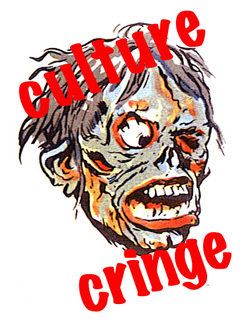There's very little to say about The Beatles that hasn't already been said more eloquently somewhere else. The same thought can be applied to their 1967 LP "Sgt Pepper's Lonely Hearts Club Band". But what probably makes this album interesting, before a note has even been heard, is the innovation that this record was.
The Beatles were nothing if not game-changers for the Music industry back in the day.
- They were the first band to write their own songs, thus becoming one of the first self contained artistic units.
- They were the first band to insist that all their singles (and thus tracks played on most radio stations) contained original material, not covers of existing songs.
- They were the first band to insist on choosing their own album art-work.
- They were the first band to use the LP as an art-form, a statement of intent unto itself, as a means of artistic expression.
- They were the first band to really extend the basic vocabulary of rock music by introducing new structures and instrumentation to the form.
- The were the first band to introduce foreign musical ideas into a largely western music.
Let's look at some of its innovations:
- It was the first single LP to have a gatefold sleeve. Gatefold sleeves were common with double LPs (themselves were not common in rock music at that point).
- It was the first album really to have the songs join up with each other with no gaps between them: The opening two tracks and the final three tracks on side two had no silence between them.
- It was one of the first LPs to present the music as a conceptual piece - of a variety show.
- It was the first rock LP to feature all the lyrics for all the songs on the cover.
- It was the first LP to have such lavish cover artwork.
- It was also the first record to have all the bands (or track separation marks) on the vinyl removed, making it difficult to see where the tracks started and ended, effectively forcing you to listen to each side all the way through.
| A vinyl record with the tracks separated into "bands" | An unbanded vinyl record. |
Most of these innovations would only be of note to people who have heard the album on vinyl. On CD, most of these things don't actually matter. But for the time, they were major innovations that no-one had actually seen before.
Of course, all this would amount to nothing if the music was no good. Fortunately, it is brilliant.
There are not many records, then or now, that start with the sound of an orchestra warming up before a performance. The title track appears twice, and while not one of the Beatles greatest songs, it is perfect for an intro and the outro of the album. The intro segues straight into Ringo's jolly singalong "With a Little Help From My Friends".
We take a trip (no pun intended) through all the styles the Beatles had attempted before on earlier records, such as Indian classical music ("Within You, Without You"), English-styled Music Hall ("Being for the Benefit of Mr Kite", "When I'm 64"), bouncy pop ("Fixing A Hole"), chamber pop ("She's Leaving Home") and hard rock ("Good Morning, Good Morning"). But the best examples of their attempts at these styles are featured here.
The whole thing concludes with "A Day In The Life", which somehow managed to fuse three disparate song ideas together and incorporate large scale, avant-garde, free-improvisation in the form of the orchestral climax at the end of the piece. It finishes with the longest sustained E Major chord in the history of recorded music.
This is a record that is designed to be played from start to finish with no tracks being skipped. And the good thing is, you can do just that without a problem. It is a thrilling journey through numerous styles of music played by a very talented quartet of musicians who were never content to stand still. They were always willing to try new things and push boundaries, and yet still remaining inviting, familiar and listenable.
Enjoy!
Note: there are no online streaming sources available for this LP.


